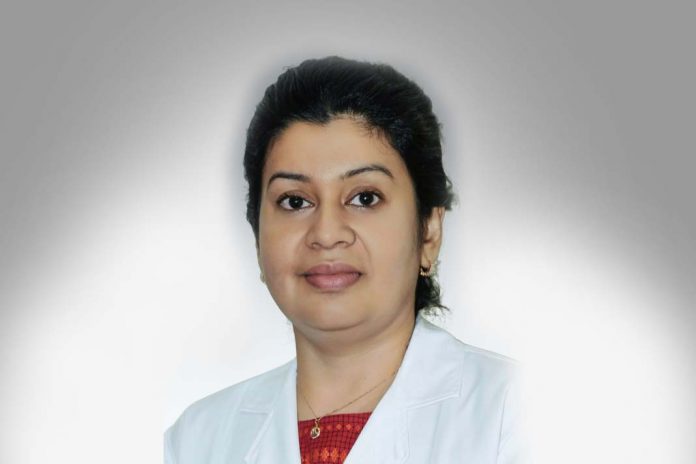Dr Shruti Prem Sudha, Consultant Haematologist, says low awareness levels show a need for more public education on sickle cell disease in the Kingdom.
One in 10 Bahraini residents may carry the abnormal sickle cell gene, and one in 100 may be affected by sickle cell disease. But, despite being one of the most prevalent diseases in the country, sickle cell disease (SCD) does not get enough attention because of low awareness levels among the public.
Dr Shruti is highlighting the need to increase public education on the disease which can be prevented through prenatal and pre-marital screening.
The high frequency of this abnormal gene in the Bahraini population means that more than 200 babies with SCD are lively to be delivery in Bahrain every year. If both parents have sickle cell trait or carry the abnormal sickle cell gene, there is a one in four chance that their child will have sickle cell disease, which can be prevented by prenatal diagnosis.
Tissue Damage
Patients with SCD have abnormal haemoglobin (a protein in red blood cells that carries oxygen to the body). While regular blood cells are round in shape and move through the vessels smoothly, the abnormal haemoglobin makes the red blood cells stiff and sticky, changing their shape and making that movement difficult. These sickle cells hinder the flow of oxygen and damage tissues.
Dr Shruti advises that children suffering from anaemia from a young age or those who have episodes of unexplained severe pain, infection, fever or swelling in the hands and feet should consult a haematologist to rule out SCD. Strokes, lung damage and blindness can occur more frequently in people SCD and lung damage is an important cause of death in SCD patients.
Pain Management
The pain of sickle cell crises is among the most unbearable pain syndromes in medicine. The expert emphasises that every patient suffering from the disease should be given an effective and individualised pain management strategy in order to decrease the suffering from this chronic condition. Regular follow-ups with a haematologist are important to manage complications such as chronic organ damage which can develop later in life.
For patients suffering from sickle cell disease, Dr Shruti suggests check-ups at least every three to six months, and emphasises the need for staying well hydrated, maintaining a healthy lifestyle, being up to date with immunisations, and avoiding extreme temperatures, stress and heavy exertion to decrease the frequency of pain crises.
Patients can also be started on a medication called Hydroxyurea after consultation with a haematologist to decrease the complications of SCD. Quitting or avoiding smoking is also very important as lung damage is frequently encountered in sickle cell disease. Newer treatments with gene editing using CRISPR technology have recently been pioneered successfully in SCD and now offer hope for a cure.
Call 17 812-000 or email: [email protected]


































